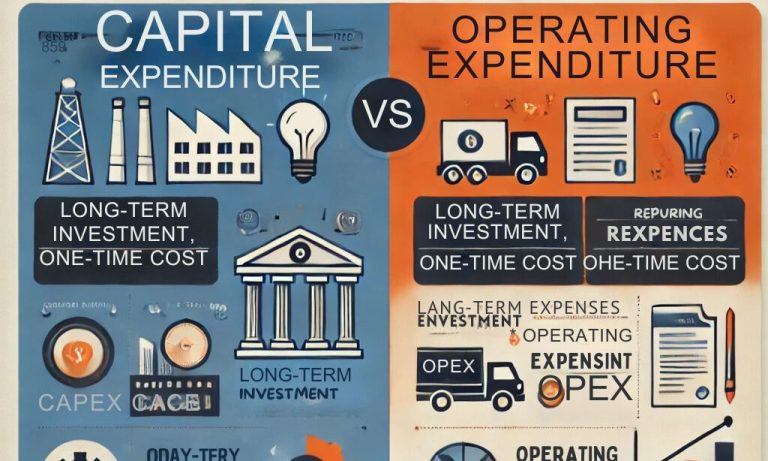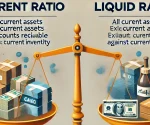The difference between capital expenditure and operating expenditure lies in their nature, purpose, and financial impact on an organization. Capital expenditure is an expenditure that is incurred in the purchasing or upgrading of long-term assets. It will eventually provide benefits over a longer period of years. Operating expenditure represents the costs incurred in running the day-to-day operations of a business, providing mostly short-term benefits within the same accounting period. Thus, understanding this is vital for accurate financial planning, reporting, and decision-making.
What is Capital Expenditure?
Capital expenditure, also known as Capex, refers to funds used by an organization to acquire, upgrade, or maintain physical or intangible assets that contribute to its long-term operational capacity. These expenses are typically aimed at generating future benefits rather than immediate operational gains. Capex plays a critical role in business expansion and modernization, ensuring sustained growth over time.
Examples are Purchasing new manufacturing equipment, constructing or renovating office buildings, and Acquiring patents, trademarks, or other intellectual property.
Characteristics of Capital Expenditure
Capital expenditure (Capex) refers to long-term investments made by businesses to acquire or improve assets that support sustained growth and operations. Here are its key characteristics:
- Long-Term Focus: Investments in assets like machinery, buildings, or technology that generate returns over several years.
- Non-Recurring in Nature: Unlike regular expenses, Capex is typically made periodically and involves significant amounts.
- Asset Creation: The expenditure results in the addition of tangible or intangible assets that appear on the balance sheet.
- Depreciation Impact: These expenditures are not fully deducted in the year of purchase; instead, their cost is allocated over the asset’s useful life through depreciation or amortization.
What is Operating Expenditure?
Operating expenditure, or Opex, refers to the routine expenses a business incurs to maintain daily operations and generate revenue within a given accounting period. These costs are essential for keeping the business running but do not create long-term assets. Opex is directly deducted from revenue in the income statement, affecting the company’s net profit.
Examples are Salaries and wages for employees, Office supplies and consumables, Utility bills such as electricity and water, and Advertising and marketing expenses.
Characteristics of Operating Expenditure
Operating expenditure (Opex) encompasses the recurring costs incurred to sustain day-to-day business operations and maintain smooth functionality. Below are its key characteristics:
- Short-Term Focus: Opex covers expenses that provide immediate benefits, typically within the same accounting year.
- Recurring in Nature: These expenses occur regularly, such as monthly or yearly.
- Direct Impact on Income Statement: Opex is fully recorded as an expense in the income statement and reduces taxable income in the same year.
- No Asset Creation: These expenditures do not result in the acquisition of long-term assets.
Differences Between Capital Expenditure & Operating Expenditure
Understanding the difference between capital expenditure and operating expenditure is essential for effective financial management. Here’s a detailed comparison:
Definition
- Capital Expenditure (Capex): Capex refers to the spending incurred by a business to acquire, upgrade, or maintain long-term assets that provide benefits over multiple years. Examples include purchasing machinery, constructing buildings, or upgrading technology infrastructure.
- Operating Expenditure (Opex): Opex involves the costs required to manage the day-to-day operations of a business, ensuring its smooth functioning. These expenses provide immediate, short-term benefits and include costs such as rent, utilities, and employee salaries.
Purpose
- Capital Expenditure: The primary purpose of Capex is to support the growth and sustainability of the business by investing in long-term assets. These investments are aimed at enhancing production capacity, efficiency, or revenue-generating potential.
- Operating Expenditure: Opex focuses on the ongoing needs of the business to sustain daily operations. These expenses ensure that the organization can meet its immediate obligations and maintain consistent productivity levels.
Accounting Treatment
- Capital Expenditure: Capex is recorded as an asset in the company’s balance sheet, as it represents an investment expected to generate benefits in the future. Over time, the value of these assets is depreciated (or amortized, for intangible assets) and the depreciation expense is gradually charged to the income statement.
- Operating Expenditure: Opex is directly recorded as an expense in the income statement for the period in which it is incurred. These costs are fully deducted from the revenue during the same accounting period, affecting the company’s net profit.
Frequency
- Capital Expenditure: Capex is typically infrequent and involves substantial financial outlays. Businesses plan these investments strategically as part of their long-term growth and development goals.
- Operating Expenditure: Opex is recurring in nature and consists of smaller, regular payments necessary to maintain daily operations. These expenses are a constant feature of the business’s financial activity.
Impact on Financials
- Capital Expenditure: Capex increases the value of assets on the balance sheet, enhancing the company’s long-term asset base. However, it reduces cash flow in the short term due to the significant initial outlay. Over time, the depreciation expense associated with these assets impacts the income statement.
- Operating Expenditure: Opex directly reduces the company’s profit since it is fully deducted from revenue in the income statement. Unlike Capex, Opex does not add to the asset value on the balance sheet.
| Aspect | Capital Expenditure (Capex) | Operating Expenditure (Opex) |
| Definition | Spending on long-term assets that generate benefits over multiple years. | Spending on day-to-day business operations for short-term benefits. |
| Purpose | To acquire, upgrade, or maintain long-term assets. | To ensure the smooth running of daily business activities. |
| Accounting Treatment | Recorded as an asset in the balance sheet and depreciated over time. | Recorded as an expense in the income statement and fully deducted in the same period. |
| Frequency | Infrequent and often involves large investments. | Recurring and involves smaller, regular payments. |
| Impact on Financials | Increases asset value on the balance sheet and reduces cash flow initially. | Directly reduces profit as it is deducted from revenue in the income statement. |
Conclusion
The difference in purpose, period, and impact on financial statements prevails between capital expenditure and operating expenditure. The former facilitates long-term growth and asset development, whereas the latter allows for smooth everyday operations. Both are vital to a company’s financial success; thus, both must be planned strategically with the goal of the organization in mind. Healthy development alongside profitability can be achieved through a proper balance of the two.
Capital Expenditure vs Operating Expenditure FAQs
What is the primary difference between Capex and Opex?
Capex involves investments in long-term assets, while Opex refers to recurring expenses for daily operations.
How are capital expenditures treated in accounting?
Capital expenditures are recorded as assets in the balance sheet and depreciated over time.
Are operating expenses tax-deductible?
Yes, operating expenses are fully deductible in the same financial year they are incurred.
Can Capex and Opex overlap?
Yes, for instance, a company may lease an asset (Opex) instead of purchasing it (Capex).
Why is it important to differentiate between Capex and Opex?
Differentiating helps in budgeting, financial planning, and accurate reporting, ensuring effective resource allocation.


